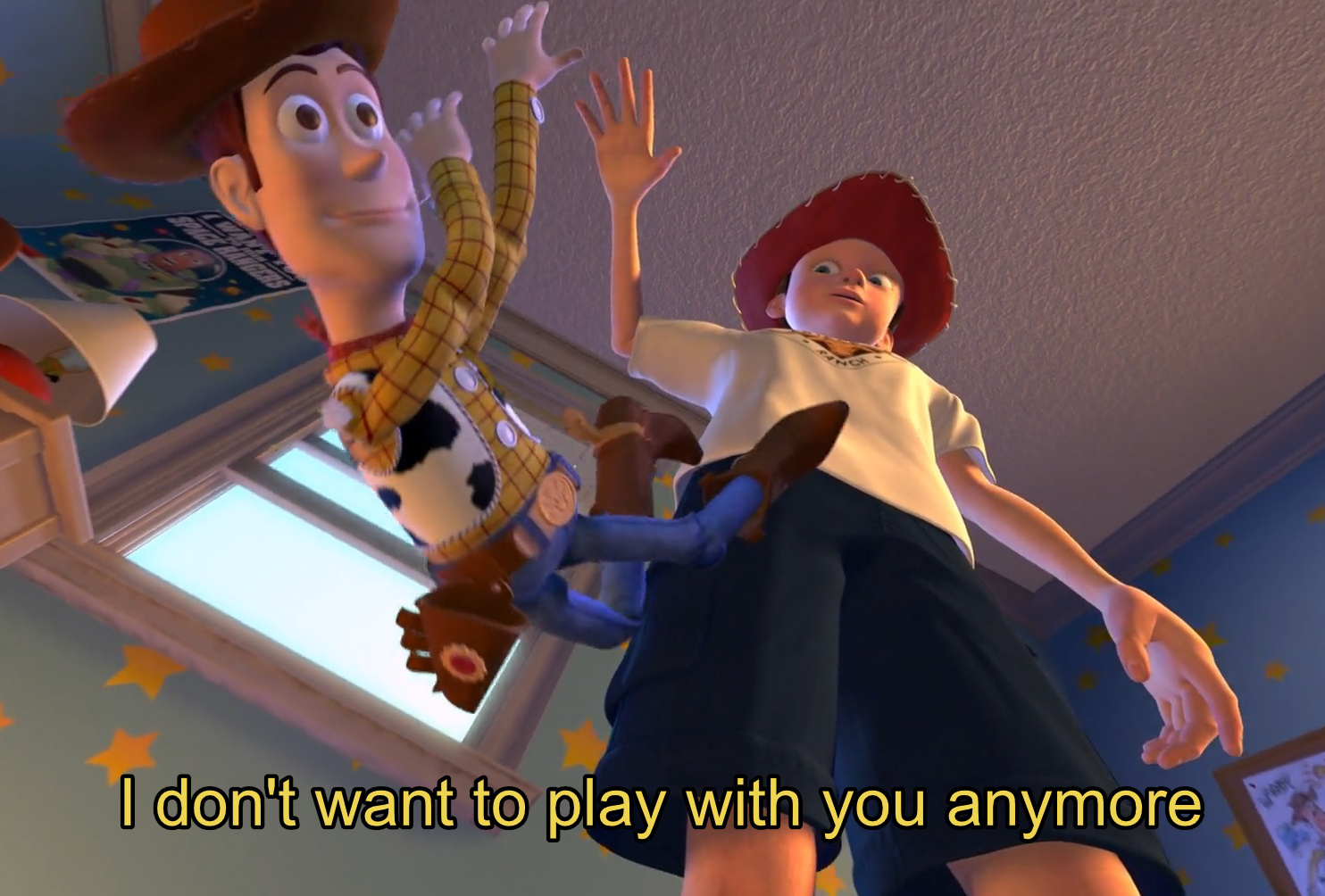Understanding The Emotions Behind "I Don't Wanna Play With You Anymore"
When someone says "I don't wanna play with you anymore," it can signify a deeper emotional response or a pivotal moment in a relationship. This phrase, though seemingly simple, carries layers of meaning that go beyond just the act of playing. It might represent a child’s feelings of frustration, exclusion, or disappointment, or it could reflect deeper relational issues that need addressing. Understanding this statement requires delving into the emotional nuances and interpersonal dynamics at play.
Whether expressed by a child, a friend, or even in a metaphorical sense within adult relationships, the sentiment behind "I don't wanna play with you anymore" holds profound implications. It often points to unmet expectations, unresolved conflicts, or a need for emotional validation. Recognizing the underlying emotions can pave the way for meaningful communication and conflict resolution. This article explores the various contexts in which this phrase might be used, offering insights into how to address and navigate such moments effectively.
As we delve deeper, you will discover practical strategies for handling these situations, fostering empathy, and building stronger relationships. Through understanding the emotional triggers and learning effective communication techniques, you can transform these moments into opportunities for growth and connection. This guide aims to equip you with the tools needed to navigate the complexities of human interaction when faced with such declarations.
Read also:Fintechzoom Economy A Comprehensive Guide To Understanding The Financial Technology Revolution
What Does "I Don't Wanna Play With You Anymore" Really Mean?
The phrase "I don't wanna play with you anymore" often surfaces during moments of tension or conflict. To truly understand its meaning, one must consider the context in which it is said. For children, it may stem from frustration over unfairness or exclusion, while for adults, it could indicate dissatisfaction with the dynamics of a relationship. This section examines the various interpretations of this statement and explores the emotional undercurrents driving it.
Why Do People Say "I Dont Wanna Play With You Anymore"?
People use this phrase to communicate dissatisfaction or discomfort in a relationship. It could be a cry for help, signaling that something is amiss. Understanding why someone says this involves looking at the relational history, current interactions, and emotional states of both parties. This subheading delves into the possible reasons behind the statement, providing insights into the psychological and emotional factors at play.
How Can You Respond When Someone Says "I Don't Wanna Play With You Anymore"?
Responding appropriately is crucial in addressing the emotions behind this statement. This subheading offers practical advice on how to react when someone expresses this sentiment. It emphasizes the importance of active listening, empathy, and open communication in resolving conflicts and rebuilding trust.
When Should You Take "I Don't Wanna Play With You Anymore" Seriously?
Not all expressions of this sentiment require the same level of response. This section discusses the signs that indicate when the statement reflects deeper issues that need addressing. It provides guidance on recognizing the seriousness of the situation and taking appropriate action.
Can This Phrase Indicate Deeper Relationship Issues?
While "I don't wanna play with you anymore" might seem like a casual remark, it can sometimes point to more significant relationship problems. This heading explores the potential long-term implications of such statements, offering insights into identifying and addressing deeper relational issues.
How Does "I Dont Wanna Play With You Anymore" Affect Relationships?
This subheading examines the impact of this phrase on interpersonal relationships. It discusses how repeated use of the statement can lead to emotional distance, mistrust, and even the breakdown of relationships. Understanding the effects can help in preventing further damage and fostering healthier connections.
Read also:Where Is Aishwarya Rai From Discover The Life And Roots Of Bollywoods Iconic Beauty
What Are the Long-Term Consequences of Ignoring "I Don't Wanna Play With You Anymore"?
Ignoring this phrase can have lasting consequences on relationships. This subheading outlines the potential long-term effects of neglecting the emotions and concerns behind the statement. It highlights the importance of addressing these issues promptly to maintain healthy and fulfilling relationships.
What Steps Can Be Taken to Rebuild Trust After Saying "I Don't Wanna Play With You Anymore"?
Rebuilding trust after such a declaration requires effort and commitment from both parties. This section provides a step-by-step guide on how to restore trust and improve communication, ensuring that the relationship can withstand future challenges.
Should You Worry If Someone Says "I Don't Wanna Play With You Anymore"?
Understanding whether to be concerned when someone says this can be challenging. This heading addresses common concerns and offers reassurance or guidance based on the context of the statement.
When Is "I Dont Wanna Play With You Anymore" a Cry for Help?
Sometimes, this phrase serves as a cry for help, indicating that the person is struggling emotionally or relationally. This subheading discusses the signs that suggest the statement reflects deeper emotional needs and provides advice on how to support the individual effectively.
What Are the Signs That "I Don't Wanna Play With You Anymore" Is Temporary?
Not all instances of this phrase indicate long-term issues. This subheading identifies the signs that suggest the sentiment is temporary and offers guidance on how to handle such situations with care and understanding.
How Can You Prevent Future Incidences of "I Don't Wanna Play With You Anymore"?
Preventing future occurrences of this phrase involves proactive measures to maintain healthy relationships. This section provides strategies for enhancing communication, building trust, and fostering mutual respect, reducing the likelihood of such statements arising again.
Table of Contents
- What Does "I Don't Wanna Play With You Anymore" Really Mean?
- Why Do People Say "I Dont Wanna Play With You Anymore"?
- How Can You Respond When Someone Says "I Don't Wanna Play With You Anymore"?
- When Should You Take "I Don't Wanna Play With You Anymore" Seriously?
- Can This Phrase Indicate Deeper Relationship Issues?
- How Does "I Dont Wanna Play With You Anymore" Affect Relationships?
- What Are the Long-Term Consequences of Ignoring "I Don't Wanna Play With You Anymore"?
- What Steps Can Be Taken to Rebuild Trust After Saying "I Don't Wanna Play With You Anymore"?
- Should You Worry If Someone Says "I Don't Wanna Play With You Anymore"?
- When Is "I Dont Wanna Play With You Anymore" a Cry for Help?
- What Are the Signs That "I Don't Wanna Play With You Anymore" Is Temporary?
- How Can You Prevent Future Incidences of "I Don't Wanna Play With You Anymore"?
Throughout this article, we have explored the multifaceted nature of the phrase "I don't wanna play with you anymore." By understanding its meanings, implications, and the emotions driving it, you can better navigate the complexities of human relationships. Whether dealing with children, friends, or romantic partners, the insights provided here aim to enhance your ability to communicate effectively, resolve conflicts, and build stronger, more resilient connections.
Remember, the key to addressing these moments lies in empathy, active listening, and open communication. By applying the strategies outlined in this article, you can transform potentially challenging situations into opportunities for growth and deeper understanding. Ultimately, fostering healthy relationships requires ongoing effort and a commitment to understanding the needs and feelings of those around you.
Article Recommendations

